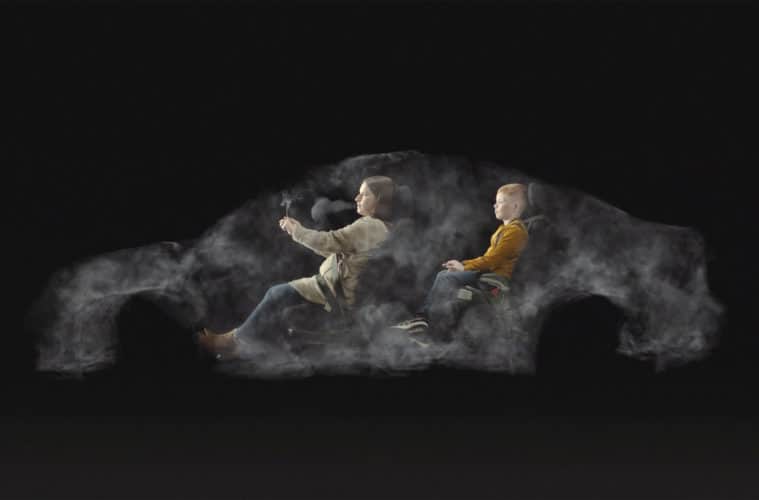Health Minister Robin Swann has urged people to give up smoking ahead of a new law aimed at protecting children from the harm caused by inhaling second-hand smoke.
From 1 February, the regulations will extend current smoke-free provisions to private vehicles where children are present, when there is more than one person in the vehicle, and the vehicle is enclosed. It will be an offence to smoke in such a vehicle and will also be an offence for a driver to fail to prevent smoking in a smoke-free private vehicle.
A media campaign launched on 10 January highlights the ban on smoking in private vehicles when children are present. It included a programme of TV, radio, outdoor and digital advertising.
Minister Swann said: “It’s important that smokers are aware of the new regulations and realise that if you smoke in a car while a child is there, or if you’re the driver and you allow someone to smoke in these circumstances, you will be committing an offence which carries a hefty penalty.
“This change in the law is widely supported by the public, charities and the Northern Ireland Assembly, and with good reason: smoking kills thousands of people in Northern Ireland every year and exposure to second hand smoke damages the health of your loved ones, particularly children. I would encourage smokers to think of this further change in the law as the motivation to give up smoking once and for all.”
In addition, from 1 February, it will also be an offence to sell nicotine inhaling products to children and to purchase, or attempt to purchase, such products on behalf of a child (a proxy purchasing offence). These offences mirror current offences relating to tobacco sales. Communications with retailers will include direct correspondence, where possible, and digital information. A media campaign commenced on 17 January and did, in particular, highlight the proxy purchasing offences to the general public.
The Minister said: “Nicotine is highly addictive and, according to the World Health Organisation, exposure to nicotine whilst still in adolescence can lead to long-term consequences for brain development. In addition to the potential long-term health implications of nicotine vaping by teenagers, there are also concerns that the use of such products may act as a gateway into smoking.
“We must do all we can to protect the health of our children and young people so I am very pleased to see the introduction of these new regulations on the sale of nicotine inhaling products.”
From 1 February, the sale of products such as e-cigarettes or vapes to children, and the purchase of them on behalf of children, can lead to significant penalties and, for repeated offences, retailers can be banned from selling such products for up to three years.
A series of radio broadcasts, digital communications and outdoor advertising will ensure that the public are aware that it is an offence to buy or attempt to buy nicotine inhaling products for children.



